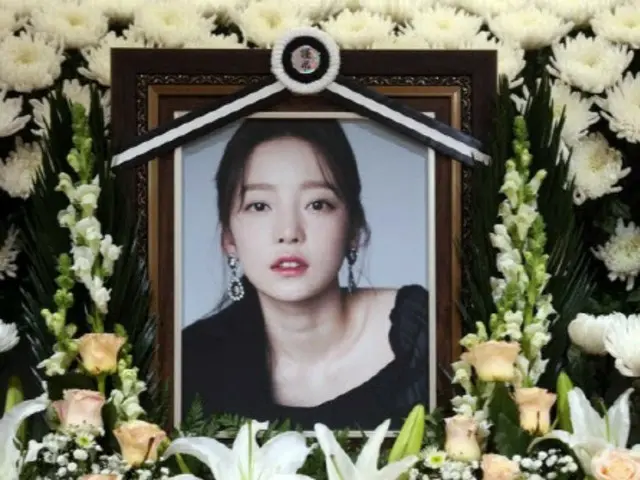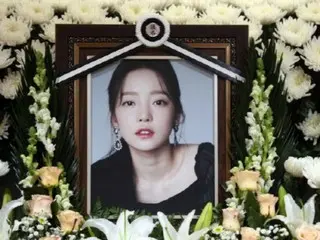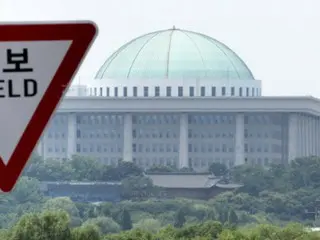The bill, which includes the Special Act on Fraud (a unique rental housing system in the country), has passed the Legislation and Judiciary Committee of the National Assembly of Korea. As it was passed unanimously by both the ruling and opposition parties, it is expected to pass the plenary session scheduled for the 28th.
The National Assembly's Legislation and Judiciary Committee held a plenary session on the afternoon of the 27th and passed the "Goo Hara Law" (a proposed amendment to the Civil Code), which will allow direct ascendants who violate unnecessary obligations to lose their inheritance rights.
The Goo Hara Law, named after the late singer Goo Hara (KARA), allows parents who fail to fulfill their child-rearing duties to have their inheritance rights revoked.
The amendment bill, which was passed by the ruling and opposition parties in 2016, provides that an heir who is a direct ascendant of the deceased may not file a tax return if the deceased has seriously violated the obligation to support the deceased or committed a serious crime.
△ In the case of unfair treatment of other declarations, it was pointed out that the loss of inheritance rights is a possible condition. In order for the actual loss of inheritance rights to occur, △ the will of the deceased and △
The family court must accept the request of the joint heirs. The proposed amendment will come into effect in January 2026.
The law will be retroactively applied to cases where inheritances were made after April 25, 2024, when the ruling was made on the unconstitutionality of the law. Currently, if inheritances are treated with disregard between the date of the ruling and the enforcement of the law,
In such cases, joint heirs will be able to file a claim for loss of inheritance rights up until the end of June 2026, within six months of the law's enforcement.
The Goo Hara Law was submitted to the National Assembly by the 21st National Assembly and has been a topic of debate, but the decision to forfeit inheritance rights has been
The ruling party and opposition parties disagreed on the method of determining whether or not to appoint a deceased person, and the matter was not passed through the National Assembly's "threshold." In this situation, the Constitutional Court decided in April to allow the deceased to become a descendant of a direct line and a sibling regardless of the deceased's wishes.
The Constitutional Court ruled that the provision on the right of inheritance to sisters was unconstitutional and inconsistent with the Constitution. In particular, the Constitutional Court ruled that the part of the law that did not provide for the reasons for the loss of the right of inheritance to direct lineal ascendants and descendants was unconstitutional and inconsistent with the Constitution.
The Constitutional Court ruled that the bill was unconstitutional, essentially acknowledging the need for the Goo Hara Law. After the Constitutional Court's decision, the ruling and opposition parties narrowed their differences through negotiations, and the bill was finally passed.
Rep. Seo Yeong-kyo, who has been strongly pushing for the bill since the 21st National Assembly, said, "It was finally passed after about five years since it was proposed in the National Assembly. During that time, there were unexpected accidents.
"There have been cases where parents who were not raising the children took the assets of those who passed away," he said, crying, "and I would like to express my sincere apologies to the surviving families."
Rep. Musik also said, "I feel very sorry that the bill could not be passed in the 21st National Diet session, which caused a sense of loss for the people. I am very pleased that the bill will soon be passed by the Legislation and Judiciary Committee."
On the same day, the Legislation and Judiciary Committee passed the Special Act on Jeonse Fraud (Special Act on Support for Jeonse Fraud Victims and Housing Stability) and the Taxi Full Monthly Wage System Suspension Act (Amendment to the Taxi Industry Development Act).
The Special Jeonse Fraud Act expands the scope of those who are recognized as victims of jeonse fraud, provides victims with public rental property for up to 20 years, and provides support for victims' housing stability.
The Taxi Monthly Wage System Deferral Law provides a two-year grace period for the nationwide expansion of the taxi monthly wage system, which provides corporate taxi drivers with a minimum working hour of 40 hours or more.
In addition, the ruling and opposition parties are also bidding for amendments to the Law for Promoting Mutual Cooperation between Large and Small Enterprises, the City Gas Business Law, the Industrial Cluster Revitalization Law, the Public Housing Special Law, and the Crime Victims Protection Law.
The bill passed the Legislation and Judiciary Committee with party agreement. The bill, which passed the Legislation and Judiciary Committee on the same day, is expected to pass the plenary session on the 28th without any problems.
2024/08/27 18:54 KST
Copyrights(C) Edaily wowkorea.jp 95









